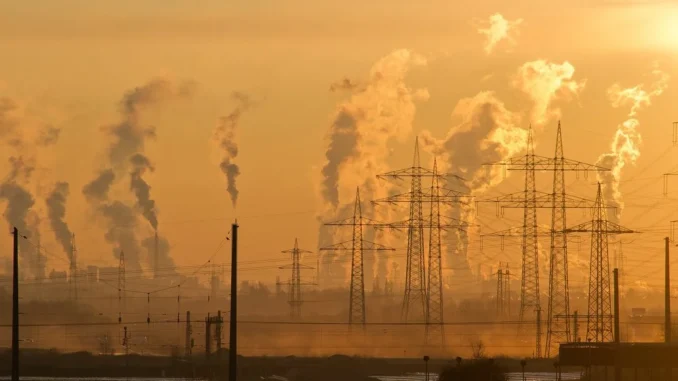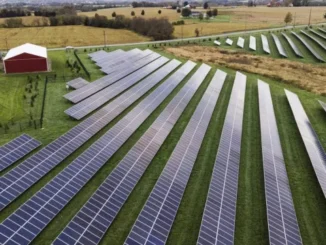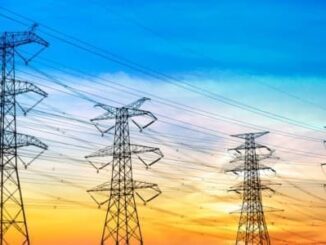
President Joe Biden this week signed into law ambitious new legislation that aims to address human-caused climate change over the next decade.
The Inflation Reduction Act, which passed in the House and the Senate along party lines earlier this month, also addresses inflation, the federal budget deficit, prescription drug prices, health insurance subsidies and corporate taxes, among other issues. Biden returned briefly from a vacation to sign the bill into law on Tuesday, reports Jim Tankersley for the New York Times.
“This bill is the biggest step forward on climate ever,” the president said at the bill signing ceremony.
Indeed, the new statute represents the largest investment the U.S. has made toward combating climate change to date, reports CNN’s Maegan Vazquez and Donald Judd. The law includes incentives to encourage companies to produce more renewable energy, as well as rebates and credits meant to push citizens toward greener energy sources.
/https://tf-cmsv2-smithsonianmag-media.s3.amazonaws.com/filer_public/a8/42/a8424d46-77dd-498c-99f7-009d84e711d1/gettyimages-1242547551.jpg)
“It’s a landmark achievement,” says Gregory Wetstone, the American Council on Renewable Energy’s president and CEO, to Politico’s Ben Lefebvre, Kelsey Tamborrino and Josh Siegel. “We have never had policy in the United States that was actually geared to drive the transition to clean energy and address the climate crisis. And we’re looking now at a measure that is up to the task.”
On climate, the law’s overarching goal is to help the nation slash greenhouse gas emissions by 2030. Biden is aiming to reduce emissions by at least 50 percent from 2005 levels.
The law includes $260 billion in new and extended clean-energy tax credits meant to incentivize energy companies and public utilities to produce more solar, wind and hydropower energy. The tax credits are also meant to encourage manufacturers to make more renewable energy equipment, such as solar panels or wind turbines. As Jeff Stein, Maxine Joselow and Rachel Roubein write for the Washington Post, the tax credits are intended to make “new green energy production cheaper for utilities to build than fossil fuel plants are.”
The package also includes $1.5 billion that will go to oil and gas companies that reduce their emissions of methane, which traps heat in the atmosphere. Another $27 billion will go toward so-called “green banks,” which help promote public and private investment in clean-energy infrastructure and technology projects.
Consumers may notice the effects of the Inflation Reduction Act in their wallets, too. With its passage comes $80 billion worth of new rebates for electric vehicles and other household energy efficiency upgrades. Starting next year, individuals and couples may be eligible for a $7,500 tax credit when they buy a new electric vehicle, or $4,000 for a used electric vehicle.
/https://tf-cmsv2-smithsonianmag-media.s3.amazonaws.com/filer_public/f3/3d/f33d2d79-119d-42b8-ae29-c5ec851d9792/solar-panels-1477987_1920.jpg)
“It’s steering everything toward making more affordable, more accessible [electric vehicles] for the mass market,” says John Helveston, an engineer at George Washington University, to NPR’s Laura Benshoff.
Homeowners, who install solar panels, heat pumps and electric induction cooktops, or make improvements to their home’s insulation, wiring and electrical panels are also eligible for credits.
Households that take advantage of these incentives should benefit from “lower monthly energy bills, reduced bill volatility and a lessening of disproportionately high energy burdens within disadvantaged communities,” says Jamal Lewis, policy partnerships director at the electrification nonprofit Rewiring America, to the Guardian’s Oliver Milman.
At the same time, the new law invests in fossil fuels, a measure that was added to gain the support of Senator Joe Manchin, reports NPR’s Rebecca Hersher. For this reason, it has drawn criticism from environmental activists. “It feels like what the bill is giving with one hand, it’s taking with the other,” Juan Jhong-Chung, climate director of the Michigan Environmental Justice Coalition, tells NPR.
The Inflation Reduction Act passed through Congress without any Republican votes. Senator Pat Toomey, during the debate on the act, called it a “reckless tax-and-spending bill,” per WFMZ’s Patrick Cloonan, and cast doubt that the bill would do anything to alleviate inflation. Economists at the University of Pennsylvania’s Wharton School issued a report that while the legislation does reduce the federal deficit and would result in an improved economy, it “would have no meaningful effect on inflation in the near term.”
Still, Ali Zaidi, the president’s deputy national climate adviser, says to NPR that the law is an “unprecedented amount of investment,” though he admits it isn’t perfect. “Without compromise,” he tells NPR, “there would be no bill.”



